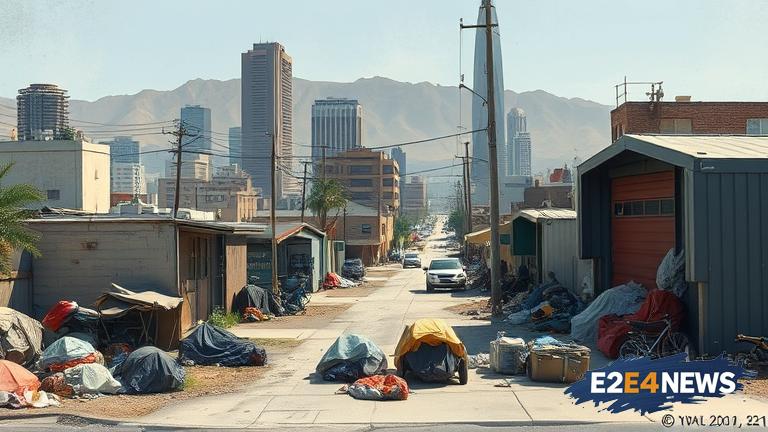The homeless epidemic in Los Angeles has reached crisis levels, with thousands of people living on the streets and in shelters. Despite the severity of the issue, the Los Angeles County Board has been accused of profiting from the crisis, sparking outrage and calls for reform. The board has been criticized for its handling of the epidemic, with many arguing that it has failed to provide adequate support and services to those in need. Instead, the board has been accused of using the crisis as an opportunity to line its own pockets, with many of its members having financial ties to companies that provide services to the homeless. This has led to accusations of corruption and greed, with many calling for the board to be held accountable for its actions. The homeless epidemic in Los Angeles is a complex issue, with many contributing factors, including a lack of affordable housing, mental illness, and substance abuse. However, the board’s handling of the crisis has been widely criticized, with many arguing that it has failed to provide effective solutions. The board has been accused of prioritizing the interests of developers and corporations over those of the homeless, with many of its members having ties to the real estate industry. This has led to the construction of luxury developments and the displacement of low-income residents, exacerbating the homeless crisis. The board’s actions have also been criticized for being overly focused on law enforcement and punishment, rather than providing support and services to those in need. This has led to the criminalization of homelessness, with many people being arrested and jailed for minor offenses such as loitering or vagrancy. The board’s handling of the crisis has also been criticized for being ineffective and inefficient, with many of its programs and services being poorly managed and underfunded. Despite the criticism, the board has continued to prioritize its own interests over those of the homeless, with many of its members using their positions to enrich themselves and their allies. The corruption and greed of the board has had devastating consequences for the homeless, with many people being forced to live on the streets and in shelters. The crisis has also had a significant impact on the community, with many businesses and residents being affected by the presence of homeless people on the streets. The issue has sparked widespread outrage and calls for reform, with many advocating for the board to be held accountable for its actions. There have been numerous protests and demonstrations, with many people demanding that the board take action to address the crisis. The issue has also been the subject of numerous lawsuits, with many arguing that the board’s actions have violated the rights of the homeless. The crisis has also sparked a wider debate about the role of government in addressing social issues, with many arguing that the board’s handling of the crisis is a prime example of the failures of neoliberalism. The issue has also highlighted the need for a more comprehensive and compassionate approach to addressing homelessness, one that prioritizes the needs of the most vulnerable members of society. Ultimately, the homeless epidemic in Los Angeles is a crisis that requires a comprehensive and multifaceted solution, one that addresses the root causes of the issue and provides support and services to those in need. The board’s handling of the crisis has been widely criticized, and it is clear that a new approach is needed, one that prioritizes the needs of the homeless over the interests of developers and corporations.
